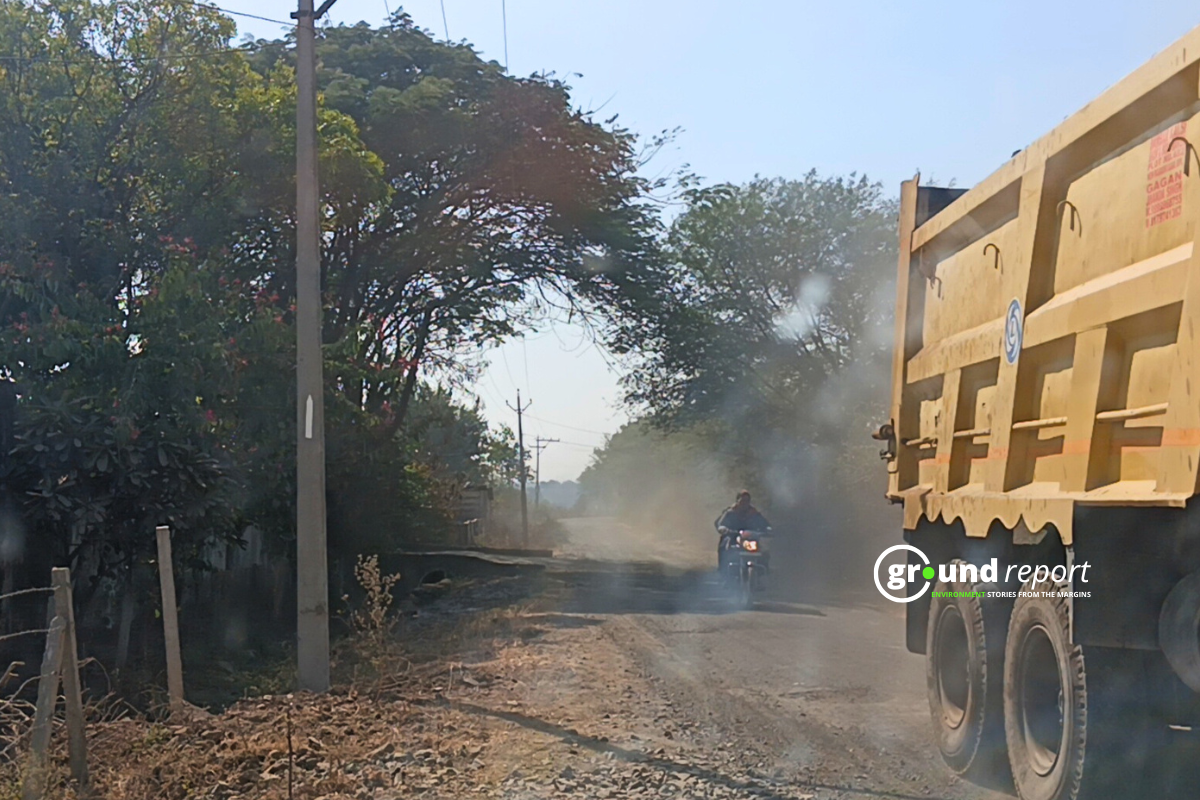A study conducted by IPEN and IPEN 17-member group countries reported that they detected toxic per- and polyfluoroalkyl substances (PFAS), categorised as Persistent Organic Pollutants chemicals including globally banned substances, in single-use, paper, cardboard, and plant-based molded fiber food containers and tableware. These items were purchased from seventeen nations across Asia, Africa, Europe, North America, and Latin America and the Caribbean.
The study was conducted on the invisible villains hiding in our everyday items – PFAS, or Per- and polyfluoroalkyl substances. These widely used chemicals, known for their toxicity, were linked to negative impacts on fertility, fetal development, and thyroid hormone function. They were even found to mimic or interfere with the body’s natural hormones, acting as endocrine disruptors.
The study embarked on a global journey, testing 119 samples of single-use food packaging and tableware collected from 17 countries across Asia, Africa, Europe, Latin America, and the Caribbean. The results were alarming. PFAS were identified across geographic regions, with the Middle East and North Africa region having the highest share. Out of the 119 samples analyzed, 64 (54%) contained PFAS.
Photos of analyzed lab packaging and tableware
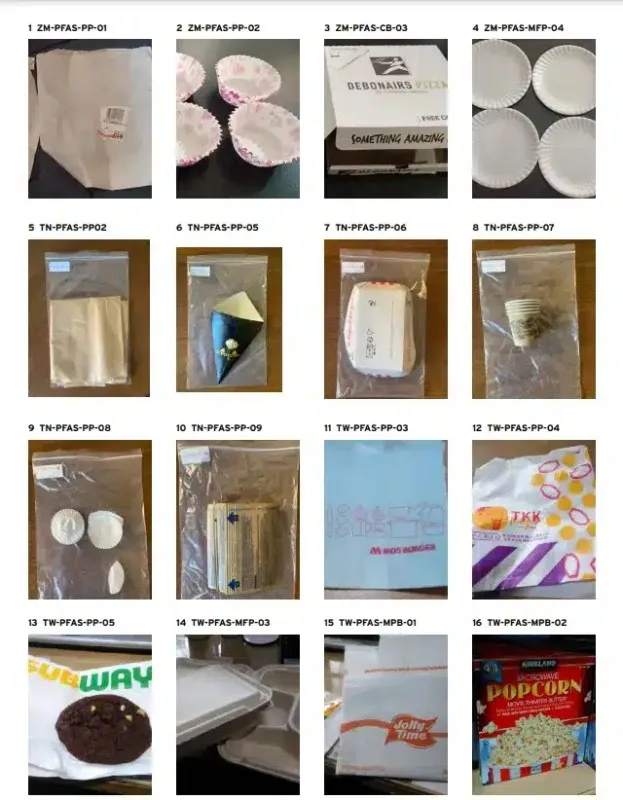
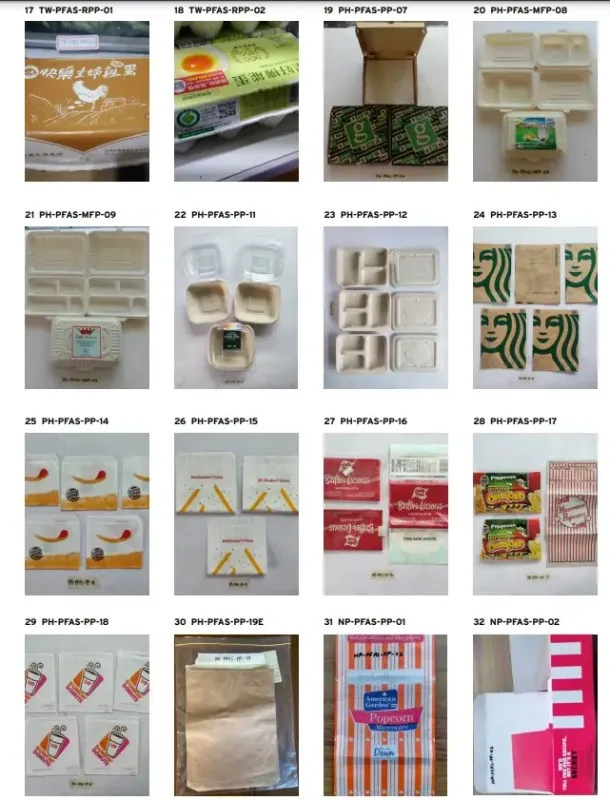

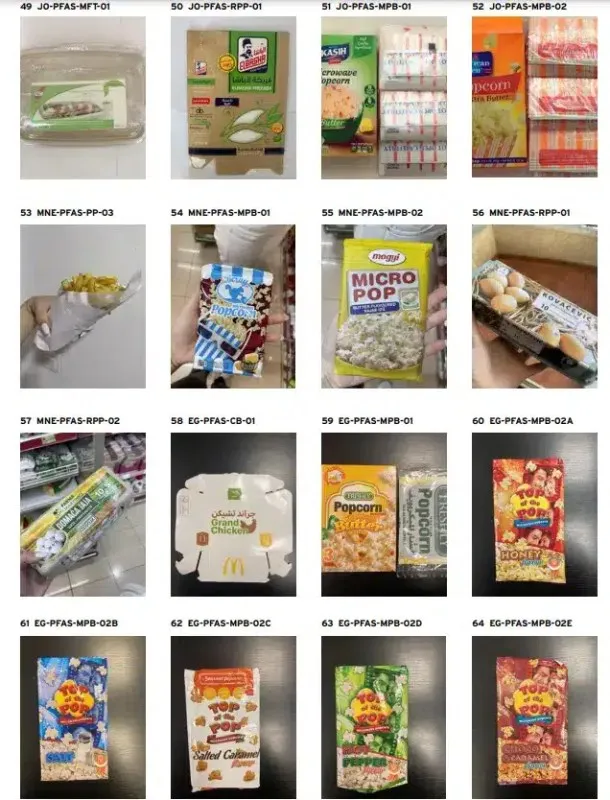
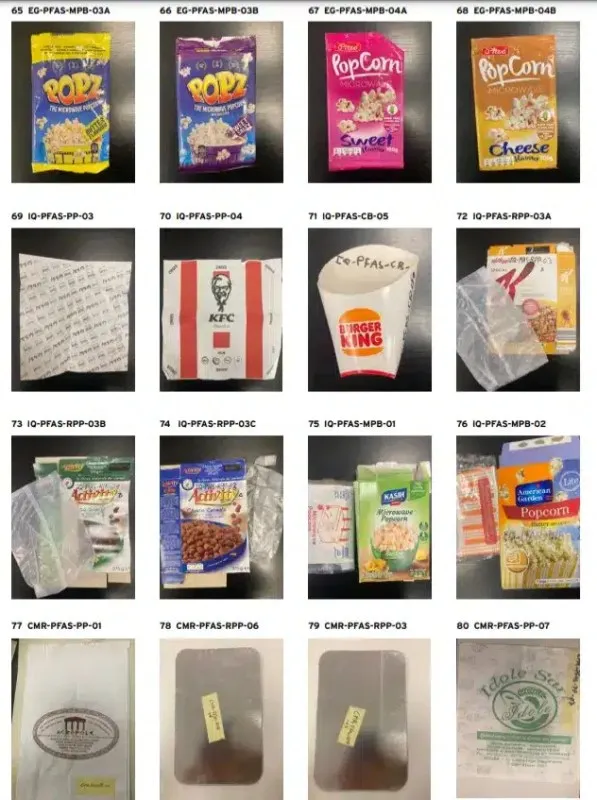
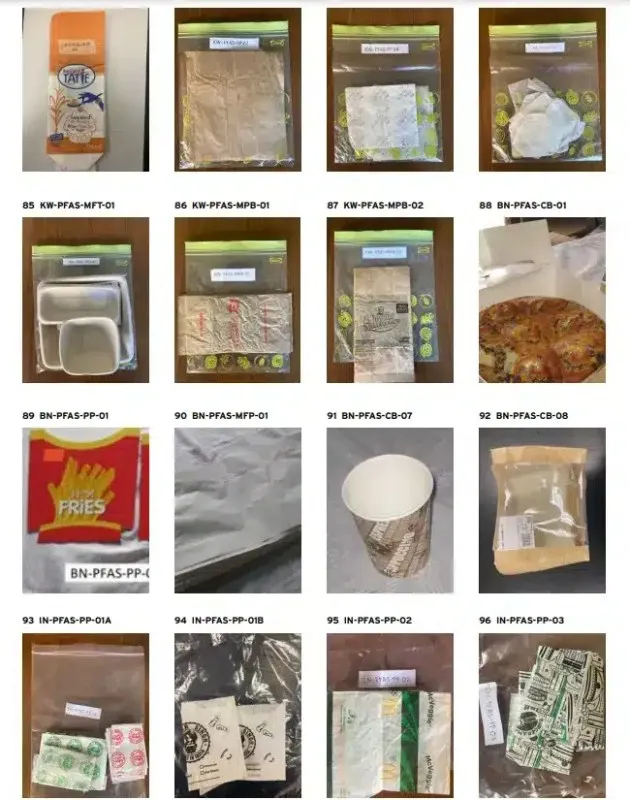
Four samples even contained PFAS above the EU limits for PFOA (25 ppb) and/or for long-chain PFCAs (25ppb for the sum of C9-C14 PFCAs). Furthermore, 53 samples contained Extractable Organic Fluorine or individual PFAS above the proposed limits in the EU REACH universal restriction.
The highest PFAS concentrations were consistently found in plant-based molded fiber products such as bowls, plates, and food boxes, often advertised as biodegradable or compostable. Microwave popcorn bags were the most frequent culprits, with PFAS found in 24 out of 28 samples.
PFAS in food packaging harmful
Cancer, infertility, and endocrine disruption are all linked to PFAS chemicals. Prior research suggests that PFAS in food packaging can leak into food, and higher concentrations of PFAS have been detected in blood testing among people who routinely consume foods sold in PFAS-containing packaging.
PFAS, harmful chemicals found in everyday items like food packaging, can affect our hormones and fertility. They’re hard to break down, polluting our environment. A study found PFAS in over half of packaging samples from 17 countries. Some places are regulating PFAS, but new types are emerging. A global ban on PFAS is suggested.
Polyfluoroalkyl substances (PFAS), due to their resistance to oil, water, and fire, find common use in food packaging and single-use dinnerware. However, the investigation found certain packaging made without PFAS, which suggests the potential for safe substitutes for these harmful substances.
Toxics Link from India has participated in this study and reported that they found PFAS in 4 out of 7 single-use food packaging samples collected and tested from some of the leading global food companies.
When people consume food processed or packaged with pervasive flame-retardant substances (PFAS), especially in single-use food packaging and fast-food tableware, they come into contact with these substances. The testing of these samples indicated that side chain fluorotelomer-based polymers (SFPs), used in the products, were present in each item.
Side-chain fluorinated polymers potentially dangerous
However, since we know that SFPs breakdown and produce various toxic PFAS, which we have identified in the samples, we may assume that someone used them. Someone must subject side-chain fluorinated polymers to the same rules as other PFAS because these substances can degrade into extremely hazardous PFAS during the life cycle.
Following the report’s release, IPEN and 17 IPEN group members reached out to food companies about their PFAS policy and shared the study findings with them; however, they didn’t receive any meaningful responses. Consequently, Toxics Link demanded the labelling of chemicals in materials that are in contact with food and other products in India.
“Fast-food culture nowadays grows and shows evidence everywhere. The presence of PFAS can disrupt the body’s biological hormone balance, particularly among young people, exposing them at early stages of adolescence. Hence, governments need to act toward a universal ban on PFAS to prevent its release into the environment and exposure to humans,” stated Alka Dubey, Programme Coordinator, Toxics Link.
IPEN & Toxics Link demand action
Global regulations have been implemented for some PFAS. Studies have found three PFAS and their related substances to be among the most highly toxic chemicals known, leading to their global ban. Current approaches mostly involve examining the thousands of PFAS chemicals individually or in small groups, a review for each group can take several years.
However, Denmark and some US states have imposed regulations on PFAS in food contact materials and some have even banned PFAS as a class in certain products. Despite this, no comprehensive global regulations protect the environment and human health from all PFAS.
IPEN and their member groups are calling for comprehensive global rules to ban PFAS as a class including polymeric PFAS and for national governments to implement immediate restrictions on the use of PFAS. In addition, governments should produce plans for and fund projects to decontaminate soil and drinking water of communities affected by PFAS pollution.
However, the story doesn’t end here. A staggering 98% or more of the PFAS content of the samples remains unidentified, since only a maximum of 2% could be verified as specific PFAS identified via targeted analysis. This leaves us with a mystery yet to be solved, a reminder of the unseen threats lurking in our everyday items.
Keep Reading
- How retreat of Machoi glacier impacting lives in Kashmir?
- Hathiya Kheda: Four Villages In MP Waiting For Roads
- “Give Plastic, Take Gold” Initiative In Sadiwara Village Of Kashmir
Follow Ground Report for Environment and Under-Reported issues in India. Connect with us on Facebook, Twitter, Koo App, Instagram, Whatsapp and YouTube. Write us on GReport2018@gmail.com.



